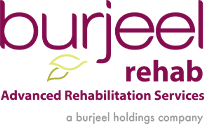Resistance exercise training is a fundamental component of rehabilitation aimed at improving strength, endurance, and functionality of muscles and joints. By utilizing various forms of resistance, such as weights, resistance bands, or body weight, this training method targets specific muscle groups to enhance physical performance and promote overall well-being.
Significances
Muscle Strength and Endurance
Resistance exercise training increases muscle strength and endurance by challenging muscles to overcome resistance, leading to improvements in functional capacity and performance.
Bone Health
Weight-bearing resistance exercises stimulate bone remodeling, promoting bone density and reducing the risk of osteoporosis and fractures, particularly in older adults.
Joint Stability
Resistance training enhances joint stability by strengthening surrounding muscles and ligaments, reducing the risk of injury and improving joint mechanics.
Metabolic Health
Resistance exercise improves metabolic health by increasing muscle mass, enhancing insulin sensitivity, and promoting glucose metabolism, reducing the risk of metabolic disorders such as diabetes and obesity.
Functional Independence
By improving strength, balance, and coordination, resistance exercise training enhances functional independence and quality of life, allowing individuals to perform activities of daily living with greater ease and efficiency.
Measures to Support
Comprehensive Assessment
Undergo a thorough evaluation by a qualified healthcare professional, such as a physical therapist or exercise physiologist, to assess muscle strength, joint mobility, and functional limitations, and determine appropriate exercise interventions.
Individualized Program Design
Work with your healthcare provider to develop a personalized resistance exercise program tailored to your specific needs, goals, and abilities, incorporating a variety of exercises targeting major muscle groups.
Proper Technique
Learn and practice proper exercise technique to ensure safe and effective performance of resistance exercises, minimizing the risk of injury and maximizing benefits.
Progressive Overload
Gradually increase the intensity, duration, and complexity of resistance exercises over time, progressively challenging muscles to adapt and grow stronger.
Variation
Incorporate a variety of resistance exercises, equipment, and training modalities to prevent plateaus, maintain motivation, and stimulate muscle growth and adaptation.
Recovery and Rest
Allow adequate time for rest and recovery between resistance training sessions to prevent overtraining, promote muscle repair and growth, and optimize training adaptations.
Nutrition and Hydration
Maintain a balanced diet rich in protein, carbohydrates, and micronutrients to support muscle repair, growth, and recovery, and stay hydrated to optimize exercise performance and recovery.
Monitoring and Adjustment
Monitor progress, track performance improvements, and communicate regularly with your healthcare provider to adjust exercise prescriptions and optimize training outcomes.


